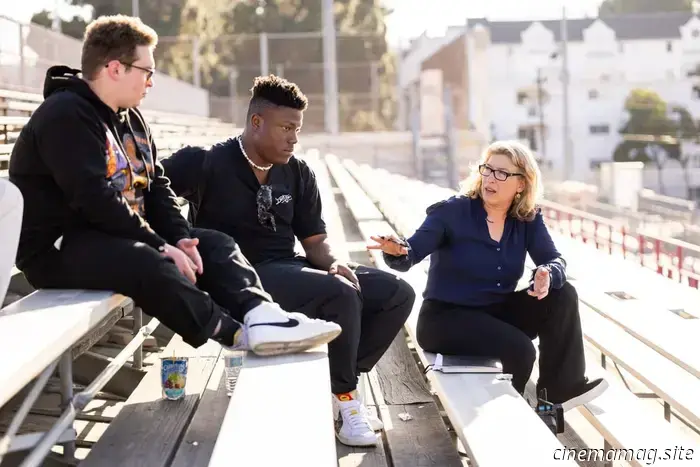
Lauren Greenfield, the Social Studies Director, discusses the influence of social media on the lives of teenagers.
“I believe social media makes many teens feel terrible, yet they don’t know how to stop using it,” shares Cooper, one of the teenagers featured in Lauren Greenfield’s docuseries Social Studies, reflecting its central idea.
“There’s this pressure to be flawless in everything you do. I need a perfect resume, a perfect GPA, ideal test scores, and the perfect body.”
She resides in a large house in Brentwood, has good friends, and, at 18, co-hosts a podcast focused on thriving. However, she identifies herself as a recovering perfectionist, admitting that she struggles with the negativity online, such as comments like “you’d be so pretty if it weren’t for your nose.” She expresses regret about feeling unable to join a recent TikTok trend that involves posting photos of her face from various angles for others to admire or critique, due to her (which, to be fair, is completely normal) nose.
She is one of the more financially privileged teens showcased in the five-part series. Yet, across various demographics, almost all share a commonality: a dependence on social media that leads to feelings of sadness.
Greenfield has previously explored themes of excess in her documentary works, including Thin (2006), The Queen of Versailles (2012), and Generation Wealth (2018). While she often focuses on the wealthy, in FX's Social Studies, she directs her attention to a form of excess accessible to anyone with a smartphone.
Jack, in the center, is one of the teens featured in Social Studies. Photo credit: Lauren Greenfield/INSTITUTE.
Her subjects allowed her near-complete access to their screens and lives, providing intriguing and at times heartbreaking insights into how many teenagers engage online: They use FaceTune to enhance jawlines or slim thighs, and seek ways around social media bans on pro-anorexia accounts. They stress over unfounded rumors regarding a socially awkward classmate allegedly planning a school shooting. They post or are subject to racial slurs.
They quickly learn disheartening algorithmic tricks, such as noticing that underage girls receive more engagement when wearing fewer clothes, and grapple with how to navigate this knowledge.
Not everything is negative; at times they form friendships or find communities online. However, their relationships often face challenges due to the constant connectivity, subjecting them to the judgments of friends, foes, and trolls.
The series primarily focuses on Palisades Charter High School, where many students come from affluent families, yet all are burdened by the trials of living in consequential times. The documentary was filmed shortly after pandemic lockdowns that increased reliance on phones among young people and others. It also captures the aftermath of nationwide Black Lives Matter protests, revealing a complex mix of awareness, performative allyship, underlying resentments, and overt racism. Students of color voice concerns about racism and segregation.
This all unfolded prior to the school being shut down due to wildfires in Los Angeles.
Greenfield avoids moralizing, allowing her subjects to express themselves. Her open-ended questions lead to expansive, vulnerable, and intricate responses, while her simple contrasts of their online and offline existences evoke both amusement and concern, likely to provoke vicarious anxiety.
Underlying the series is the realization that we are not merely observing a snapshot of teenage lives: these individuals will eventually shape our world, making their values and habits the new standard.
We spoke with Greenfield about earning her subjects' trust and sharing their stories on a larger platform.
Lauren Greenfield leads an offline discussion for her docuseries Social Studies. Photo credit: Lauren Greenfield/INSTITUTE.
Joshua Encinias: What was the initial idea for Social Studies, and how did it change during production?
Lauren Greenfield: The original idea was a social experiment that would follow a group of high school students over a year, examining social media’s influence. I have studied media's impact on youth since the ’90s. My first book, Fast Forward: Growing Up in the Shadow of Hollywood, explored how cable TV and Hollywood influenced L.A. youth. However, witnessing social media's effect on my own children, who were 14 and 20 at the time, motivated me to examine it from their viewpoint, rather than relying on experts or adults. The ability to access what’s truly on their phones was crucial.
The most significant change was technical. Social media platforms intentionally make it difficult to extract content. I employed an engineer who struggled to access their phones, but my teen assisted in creating a workaround for real-time feeds. This became essential because so much of modern life occurs on phones, unseen by traditional filming methods. Ultimately, though, I followed the narratives of the kids wherever they directed me.
Also Read: Giving Voice to the Adolescents of Adolescence
Joshua Encinias: How did you gain access to the teens’ phone activity?
Lauren Greenfield: Part of it is a trade secret, but we used Apple's screen recording as one method—al



Other articles
 First Trailer for In the Mood for Love 2001 Enhances Wong Kar-wai’s Iconic Love Story
After the announcement that Wong Kar-wai's much-anticipated Blossoms Shanghai would be released in North America this year through the Criterion Channel, Janus Films has another surprise from the director hitting theaters this week. Following its Valentine's Day release in Hong Kong, Wong Kar-wai's In The Mood For Love 2001 is receiving a nine-minute expansion.
First Trailer for In the Mood for Love 2001 Enhances Wong Kar-wai’s Iconic Love Story
After the announcement that Wong Kar-wai's much-anticipated Blossoms Shanghai would be released in North America this year through the Criterion Channel, Janus Films has another surprise from the director hitting theaters this week. Following its Valentine's Day release in Hong Kong, Wong Kar-wai's In The Mood For Love 2001 is receiving a nine-minute expansion.
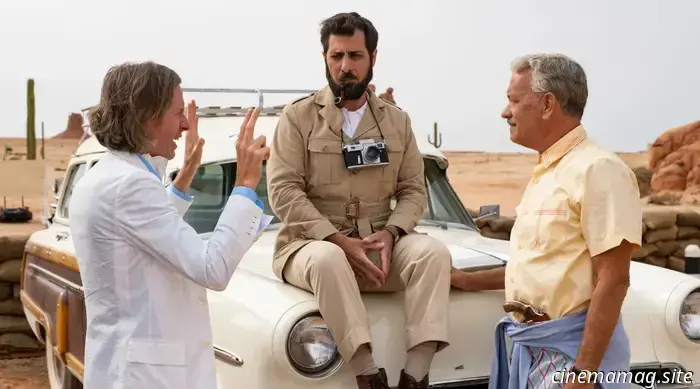 Suggested New Reads on Filmmaking: A Trip to Asteroid City, Women of the French New Wave, the Iconic Gandolfini, and J. Hoberman's Reflections on the '60s.
As summer arrives, it’s appropriate to start with the sunniest aspect of Wes Anderson’s work, then explore a piece from J. Hoberman, a must-read biography of James Gandolfini, and many more options to enjoy while you soak up the sun. The Wes Anderson Collection: Asteroid City by Matt Zoller Seitz (Abrams) The Wes
Suggested New Reads on Filmmaking: A Trip to Asteroid City, Women of the French New Wave, the Iconic Gandolfini, and J. Hoberman's Reflections on the '60s.
As summer arrives, it’s appropriate to start with the sunniest aspect of Wes Anderson’s work, then explore a piece from J. Hoberman, a must-read biography of James Gandolfini, and many more options to enjoy while you soak up the sun. The Wes Anderson Collection: Asteroid City by Matt Zoller Seitz (Abrams) The Wes
 In the trailer for Ron Howard's "Eden," Jude Law, Ana de Armas, Vanessa Kirby, and Sydney Sweeney encounter challenges in their idyllic setting.
Vertical has unveiled the trailer for Ron Howard's survival thriller, Eden, featuring a cast of well-known actors stranded on a secluded island, where they soon realize that the picturesque setting reveals their darker sides. Inspired by real events, Eden's impressive lineup includes Jude Law (Star Wars: Skeleton Crew), Ana de […]
In the trailer for Ron Howard's "Eden," Jude Law, Ana de Armas, Vanessa Kirby, and Sydney Sweeney encounter challenges in their idyllic setting.
Vertical has unveiled the trailer for Ron Howard's survival thriller, Eden, featuring a cast of well-known actors stranded on a secluded island, where they soon realize that the picturesque setting reveals their darker sides. Inspired by real events, Eden's impressive lineup includes Jude Law (Star Wars: Skeleton Crew), Ana de […]
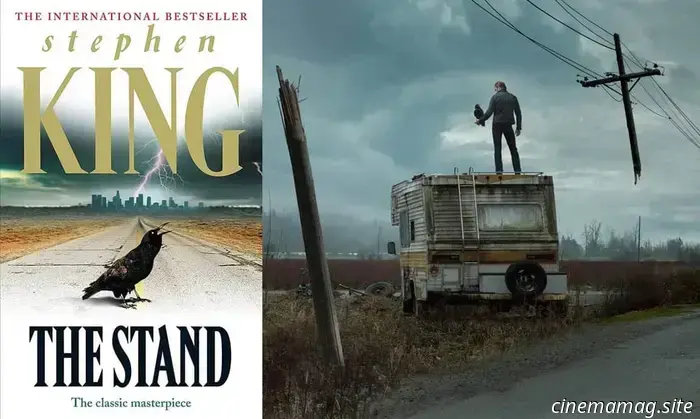 Doug Liman is set to adapt Stephen King's The Stand for Paramount Pictures.
Doug Liman is gearing up to take on the challenge of adapting Stephen King’s The Stand for the cinema. According to The Hollywood Reporter, the director known for The Edge of Tomorrow and The Bourne Identity will attempt to distill King’s legendary 1978 novel into a feature film. Although it was successfully adapted into a notable 1994 miniseries and a less well-received 2019 limited series, […]
Doug Liman is set to adapt Stephen King's The Stand for Paramount Pictures.
Doug Liman is gearing up to take on the challenge of adapting Stephen King’s The Stand for the cinema. According to The Hollywood Reporter, the director known for The Edge of Tomorrow and The Bourne Identity will attempt to distill King’s legendary 1978 novel into a feature film. Although it was successfully adapted into a notable 1994 miniseries and a less well-received 2019 limited series, […]
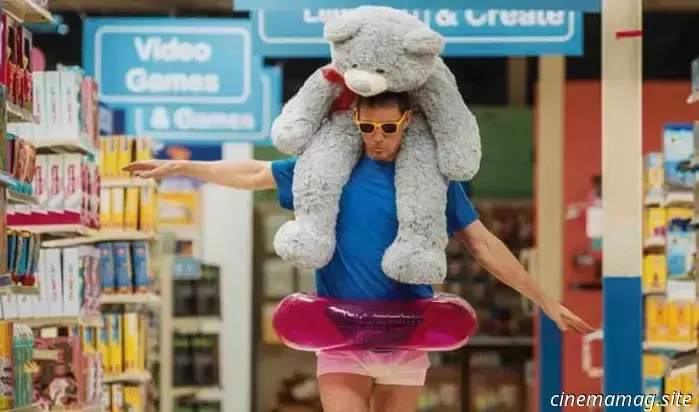 The initial trailer for the crime comedy Roofman featuring Channing Tatum has been released.
Paramount Pictures has released the first trailer for Roofman, a crime comedy-drama directed by Derek Cianfrance (Blue Valentine). The film tells the true story of fugitive Jeffrey Manchester, featuring Channing Tatum as the ex-Army Ranger who evaded capture for six months by secretly residing in a Toys “R” Us after robbing multiple McDonald’s restaurants. Tatum is joined by […]
The initial trailer for the crime comedy Roofman featuring Channing Tatum has been released.
Paramount Pictures has released the first trailer for Roofman, a crime comedy-drama directed by Derek Cianfrance (Blue Valentine). The film tells the true story of fugitive Jeffrey Manchester, featuring Channing Tatum as the ex-Army Ranger who evaded capture for six months by secretly residing in a Toys “R” Us after robbing multiple McDonald’s restaurants. Tatum is joined by […]
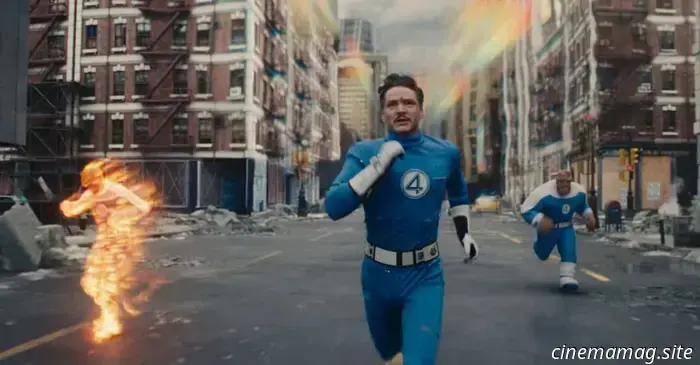 The final trailer for The Fantastic Four: First Steps announces the arrival of Galactus.
With only a month left before The Fantastic Four: First Steps hits theaters, the final trailer has been released online for the Marvel Studios blockbuster, giving another glimpse of Marvel's First Family in action; take a look below... Set in a colorful 1960s-inspired, retro-futuristic environment, Marvel Studios' “The Fantastic […]
The final trailer for The Fantastic Four: First Steps announces the arrival of Galactus.
With only a month left before The Fantastic Four: First Steps hits theaters, the final trailer has been released online for the Marvel Studios blockbuster, giving another glimpse of Marvel's First Family in action; take a look below... Set in a colorful 1960s-inspired, retro-futuristic environment, Marvel Studios' “The Fantastic […]
Lauren Greenfield, the Social Studies Director, discusses the influence of social media on the lives of teenagers.
Social Studies director Lauren Greenfield discusses her process of creating the outstanding Hulu docuseries that explores the impact of social media on the lives of teenagers.
